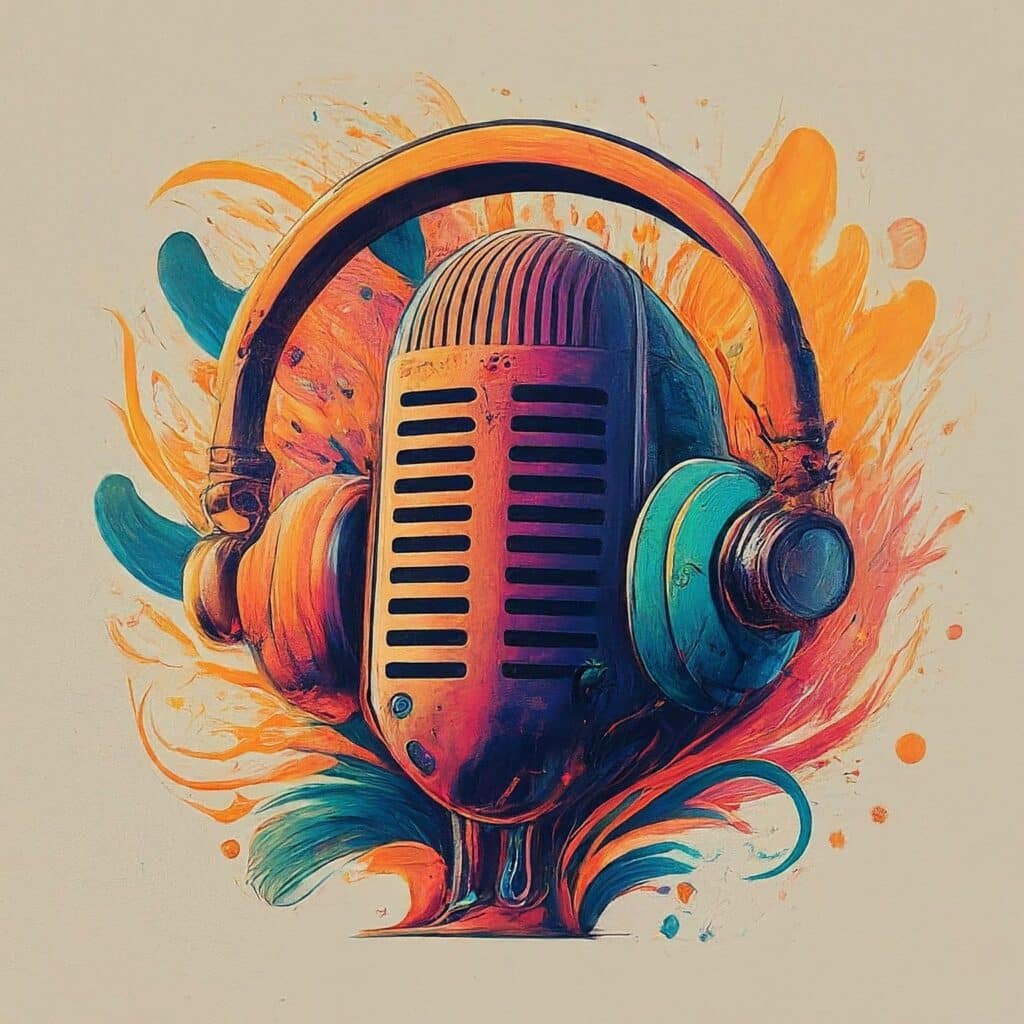Introduction:

Podcasts have evolved significantly over the years, and one noticeable trend is the shift from using generic library music to commissioning custom compositions. This article explores the intricacies of music composing for podcasts, emphasizing the importance of creating tailored pieces that enhance the listener’s experience without overshadowing the podcast’s primary content.
Composing for Podcasts:
Unlike films, podcasts rely solely on audio, making the integration of music a delicate process. The goal is to complement the dialogue seamlessly. Composers often start by establishing a theme and then experiment with variations, exploring different keys or tempos to find the perfect fit.
Consideration for Host and Content:
A crucial aspect of podcast music composition is tailoring the work to the podcast host’s style, the overall mood, and the subject matter. The music should be memorable yet unobtrusive, allowing the host’s voice to take center stage. With only a few seconds to introduce a motif, composers must convey a significant impact without drawing excessive attention. Crafting an engaging “intro” and “outro” can enhance the overall podcast experience.
Contractual Insights:
Most podcasts opt for music buy-outs, eliminating royalties or back-end payments. Contracts typically include provisions for revisions and may require composers to provide stems, stings, bumpers of various lengths, loops, and alternate mixes.
Negotiation and Licensing:
While many podcasts prefer exclusive contracts, smaller ones might consider non-exclusive licensing. Composers should be open to negotiation and actively engage with podcast producers to find mutually beneficial agreements. Check this link…
Advantages of Composing Music For Podcasts:
Podcasts offer a unique advantage in fostering closer collaboration between composers and production teams compared to larger corporate productions like films. Personal interaction and understanding the podcast’s specific needs become crucial elements in creating a successful musical composition.
Utilizing Podcast Music Libraries:
Specialized podcast libraries cater to the unique requirements of podcasts. Composers should explore these libraries to identify potential markets that align with their expertise.
Getting Started:
To enter the podcast composing landscape, utilize databases that production companies frequent to discover composers. Websites like AIR (American Independent Radio) provide a platform to showcase your skills and connect with potential job opportunities in the radio and podcasting industry (https://airmedia.org).
Networking and Engagement:
Engage in social media platforms to connect with podcast producers, directors, and fellow composers. Personalize your outreach by reaching out to those whose work you admire. The personal nature of podcasts often leads to unexpected responses, opening doors to exciting opportunities.
Conclusion:
In the ever-expanding world of podcasts, music composers play a pivotal role in enhancing the overall listening experience. By tailoring compositions to the unique requirements of podcasts and actively engaging with the podcasting community, composers can establish themselves as integral contributors to this dynamic and growing industry.